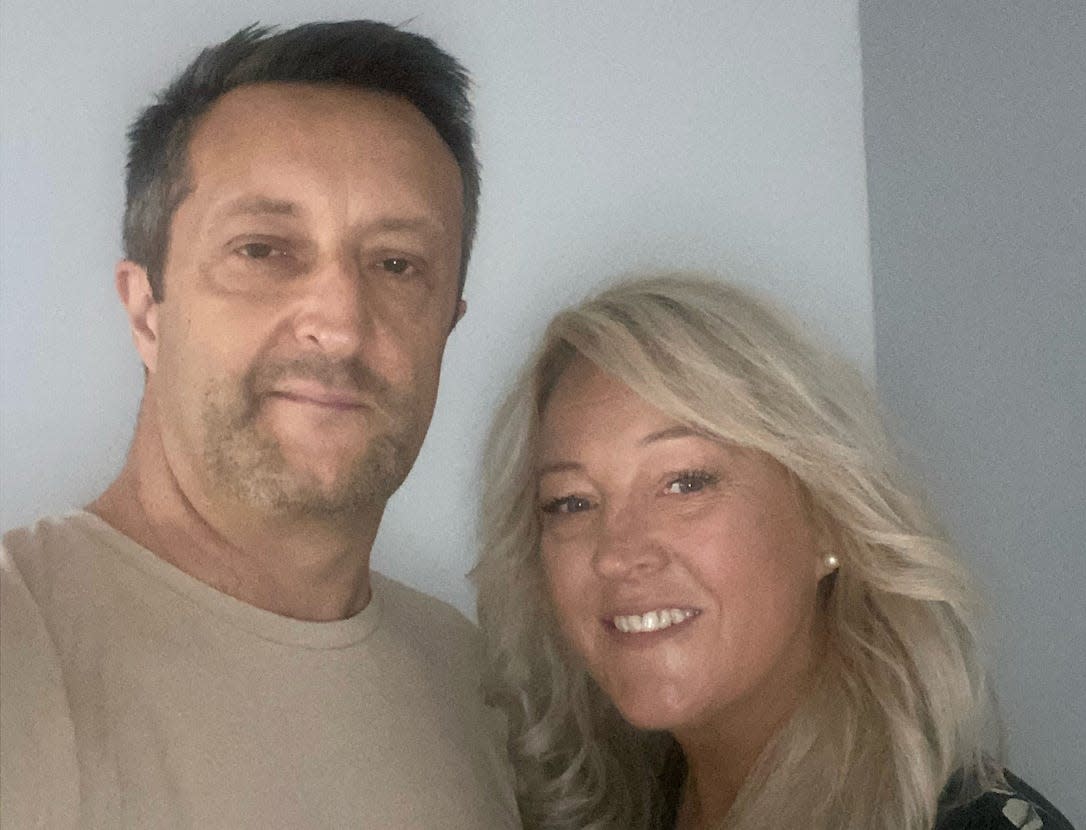A wife saved her husband's life when she turned out to be the 1 in 100,000 kidney donor match he needed

A man with a rare kidney disease was given 'the greatest gift' by his wife – one of her kidneys.
Darren Creed could barely hold a conversation after his kidney function dropped to 19%.
The chance of a perfect kidney match between two unrelated people is around 1 in 100,000.
A wife transformed her seriously ill husband's life after she donated her kidney to him. The chance of a perfect match between two unrelated people is about one in 100,000.
Darren Creed, 49, who is a chef lecturer based in the UK, was diagnosed with polycystic kidney disease 12 years ago, according to his fundraising page. The inherited disease is considered rare, affecting around 12 million people globally, Jane Pugh, communications and events manager at the UK-based Polycystic Kidney Disease Charity, told Insider.
Although PKD is usually genetic, Creed was the first person in his family to develop it, according to his fundraising page. This is the case in four to 10% of patients, and happens when a spontaneous mutation happens in the PKD1 or PKD2 gene of one of their parents.
'Like getting my husband back from 25 years ago.'
By August last year, Creed's kidney function had deteriorated to just 19%, leaving him with severe exhaustion that prevented him from socializing and even holding a conversation, news agency SWNS reported.
His doctors recommended that he start looking for a donor, as there is currently no cure for PKD, and although several of his family members volunteered to be tested, his wife Donna turned out to be a suitable match.
"Darren received the gift of life from her," his fundraising page reads.
Donna Creed, a hotel manager who donated her kidney last month, told SWNS: "Darren woke up from the transplant a new person. It was like getting my husband back from 25 years ago. He was laughing and joking where he had been so tired before."
She said: "We genuinely didn't think I was going to be a match because the chances are so slim but every test we had came back looking like it was matching," and called the transplant "the greatest gift" she could give.
"I can't say thanks enough to Donna, she has saved my life," Creed said.
The couple is now raising awareness of the life-changing impact of organ donation, and Creed is fundraising for PKD Charity.
PKD is caused by clusters of cysts on the kidneys
PKD is the most common inherited kidney disease in which clusters of cysts develop on the kidneys, causing them to enlarge and lose function over time. Cysts are noncancerous, round sacs filled with fluid.
Symptoms can include high blood pressure, blood in the urine, headaches, UTIs, kidney stones, and kidney failure.
If the kidneys become very large, this can put a lot of pressure on the internal organs, causing pain, difficulty breathing and other complications, Pugh said. Two in three people with PKD suffer from chronic pain, she said, while heart valve issues due to high blood pressure, cysts can also develop on the liver, and brain aneurysms can also occur.
Drugs can slow the progression of PKD, but kidney failure can only be treated by either dialysis, a treatment that removes excess fluid and waste products from the body when the kidneys are unable to, or kidney transplant.
Lifestyle changes such as maintaining a healthy weight, eating a low-salt diet, and limiting alcohol use can help prevent the risk of complications in people with PKD.
Read the original article on Insider

